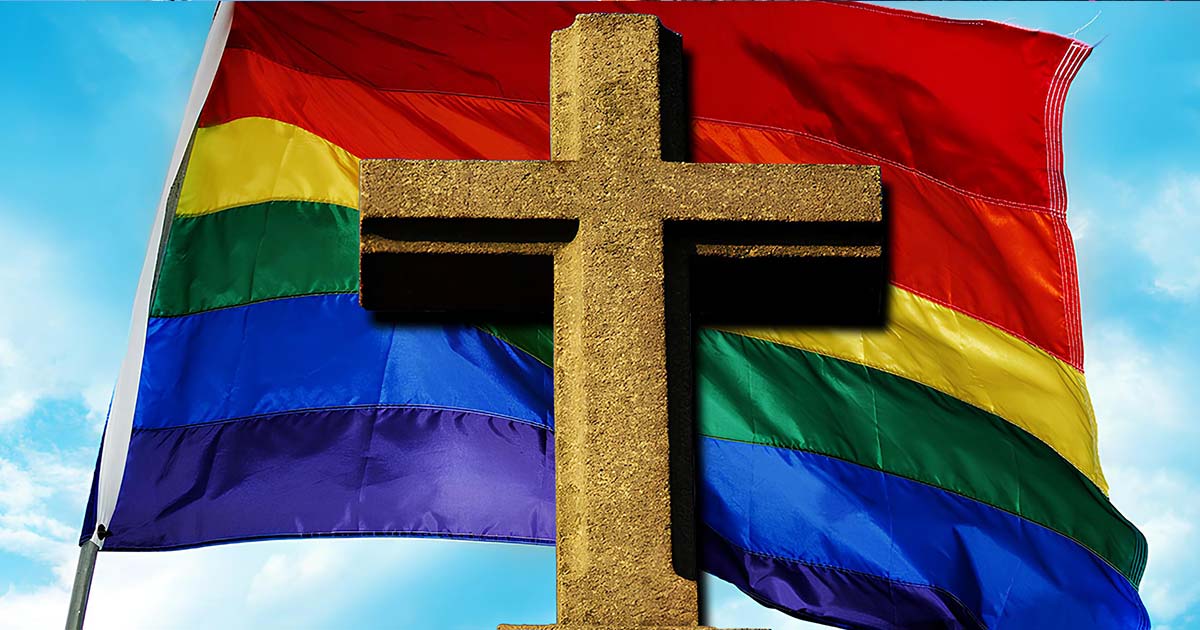“We Are Gatvol!” Churches Challenged to Embrace LGBTIQ+ People in Queer Kairos Document

The Queer Kairos Document declares a critical moment for the Church to embrace radical love, justice, and transformation
In response to the Southern African Anglican Church’s recent shocking rejection of same-sex unions, a powerful statement is calling on all churches to embrace inclusive love and reject queerphobia.
On 26 September, the Provincial Synod of the Anglican Church of Southern Africa voted against allowing parish priests to choose to bless same-sex couples and rejected a set of prayers, drawn up by bishops, intended to provide pastoral ministry to those in civil unions.
The decision sent a shockwave through the queer Christian community in the region which had hoped for a progressive move towards a more inclusive and LGBTIQ+-affirming stance.
Queer Kairos: A Call for Radical Change
The newly released statement, titled Queer Kairos Document: A Call to Justice, Transformation and Love in Southern African Churches and Beyond was written by Professor Sarojini Nadar from the Desmond Tutu Centre for Religion and Social Justice, at the University of the Western Cape.
The Queer Kairos Document draws inspiration from the original historic 1985 Kairos Document that denounced the Church’s complicity in apartheid. (Kairos is Greek for “the right time” or a “critical moment”.)
In a similar spirit, the Queer Kairos declares a critical moment for the Church to embrace radical love, justice, and transformation, advocating for a departure from patriarchal and heteronormative theology.
In the document, Nadar states that the Anglican decision is not an isolated moment of exclusion but “is part of a broader theological crisis facing the Church in South Africa and beyond.”
She states that “the Church’s refusal to affirm sexually diverse love — beyond heteronormative constructs — reveals a failure to embrace the fullness of the gospel’s call to justice, radical love, and transformative inclusion.”
Three Pillars: Lament, Righteous Anger, and Prophecy
The document highlights three key biblical pillars: lament, righteous anger, and prophecy. Firstly, it laments the Church’s gatekeeping of blessings, viewing them as acts of grace that should be accessible to all.
It also expresses righteous anger at the Church’s refusal to affirm the dignity and humanity of queer people, likening this exclusion to gender-based violence.
“We are gatvol—completely fed up—with the Church’s refusal to recognise the image of God in all people. This is not just a theological disagreement; it is a matter of life and death, of dignity and dehumanisation,” says Nadar.
Finally, the document calls on the Church to embrace prophetic theology, which actively resists oppression, and to bless same-sex unions as an essential part of God’s love and justice.
“The struggle for queer rights is not separate from the struggle against racism, sexism, and all other forms of oppression. The Church must recognise the interconnectedness of these struggles and commit to a truly intersectional theology of liberation,” it states.
A Prophetic Call for Action and Inclusion
The Queer Kairos Document urges all churches in South Africa and beyond to act decisively by dismantling heteropatriarchy, blessing same-sex unions, providing pastoral care for LGBTQIA+ people, and repenting for the harm caused by queerphobic theology.
“We are living in a queer kairos moment — a moment of decision, a moment of truth. The Church is at a crossroads. It can choose to continue down the path of exclusion, or it can choose to embrace the radical, transformative love of Christ,” writes Nadar.
The document envisions a Church that fully embodies the inclusive love and justice of Christ, rejecting exclusion and affirming the sacredness of all relationships based on mutual respect and love.
This moment, it asserts, is a call to overturn the tables of exclusion and live into the vision of “God’s kin-dom” where all are welcome and affirmed.
The full Queer Kairos Document can be found here. You can add your voice in support of this important statement by virtually signing the document through an online petition.
The church is no place for any humanity-loving person, whether LGBTQI+ or not.
They are deluded and convinced of their own superiority. They will not change.
Their fairytales are not real and LGBTQI+ people are, so screw them- leave them to their fantasies and waste none of your light on them or trying to find grace from them.
You know what? My church does not accept me and my husband, so screw them. Even if a court order force these denominations, I would still not go. I don’t want to sit in a churh where the powers that be and the majority of church goers don’t want me there. how desperate should one be to force oneself onto a churh. Let them go to hell! 😉